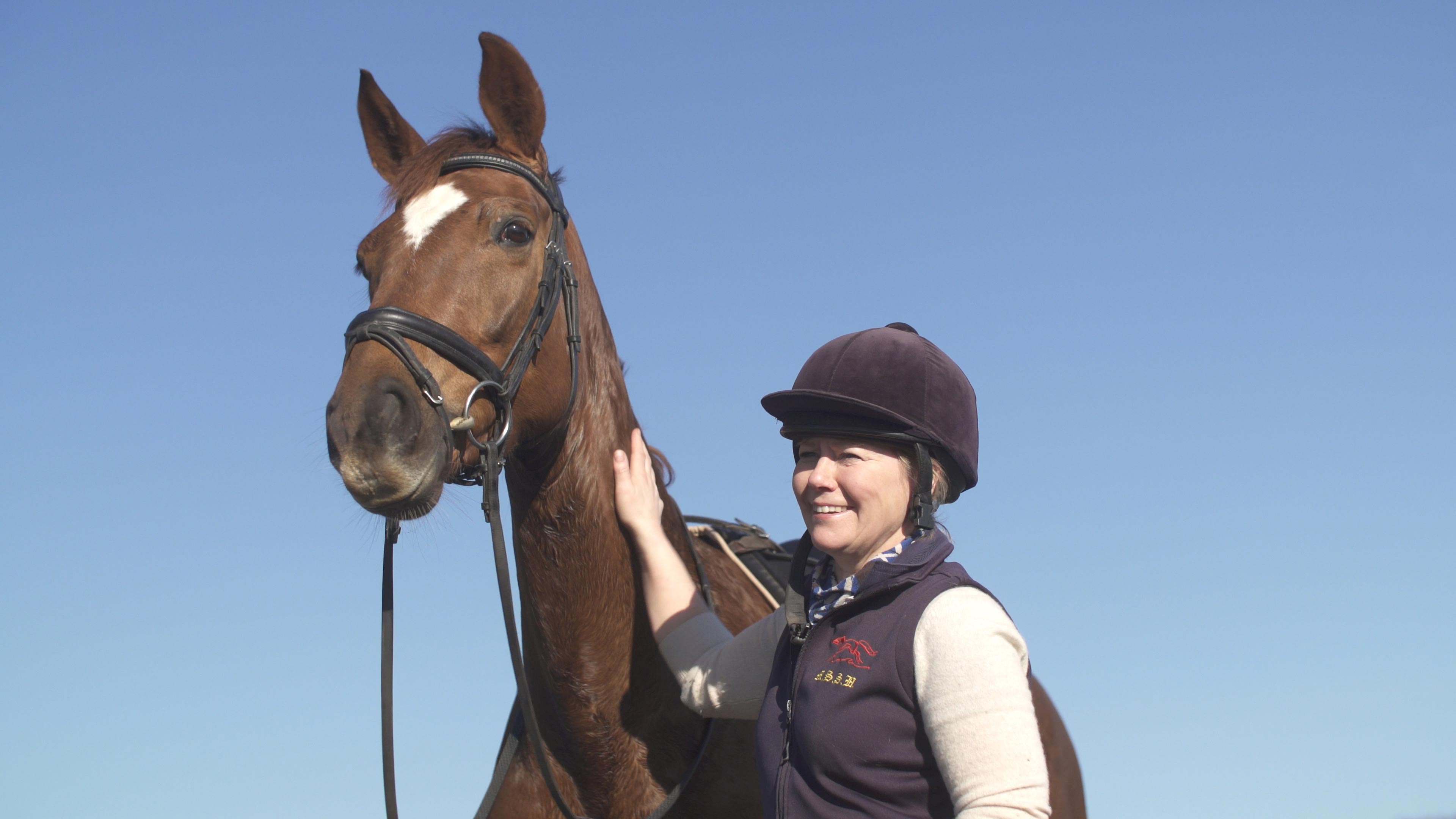Sally back in the saddle thanks to robot technology
22 July 2019
She was just three years old when she first sat in the saddle but, after a lifetime of horse-riding, 53-year-old Sally Johnson feared ever-increasing hip pain could mean an end to the hobby she loved.
But months after undergoing a hip replacement operation Sally is ‘back on the horse’ and looking forward to another season of dressage competitions.

“Riding horses is my passion and I have ridden competitively at amateur level to a reasonably high standard for many years. However, I had been suffering pain from a deformed hip since my teens and this was becoming progressively worse.
“It reached the stage where it was becoming impossible to manage with standard pain relief and so affecting my enjoyment as well as my effectiveness. I could still ride - but not to the levels I wanted to,” explained Sally, who lives in Longdon with partner Mike Jones.
It was at that point that a professional rider friend of the couple pointed Sally in the direction of Orthopaedic Consultant Surgeon Mr Gunther Selzer who was carrying out hip replacement operations at Spire Little Aston Hospital using the latest in robot-assisted surgery.
“As soon as Mr Selzer explained the procedure to me I knew that it was exactly what I was looking for. The hospital had only just introduced the system when I had my operation but I was confident in my surgeon’s abilities and everything went exactly to plan,” said Sally.
In a nutshell, the Stryker Mako system uses CT scans to generate an exact model of the patient’s hip, highlighting the damaged areas in need of removal. That information is then fed back through the robotic arm allowing the surgeon to determine how much bone to remove and also to ensure accurate alignment, achieving optimum soft tissue balancing.
If the robotic tool is passed over a part of the knee that doesn’t need removing then the cutters automatically stop… not starting again until it reaches parts mapped out for removal. Once the bone is removed the Mako then assists the surgeon as to where to place the implant to achieve the most accurate fit possible.
“Two months after leaving the hospital I was back in the saddle,” explained Sally. “Not for long of course but at least I was back on a horse. Over the following couple of months my recovery continued and I am now out competing again – I can’t remember a time when I’ve so looked forward to the dressage season starting.
“I have a fantastic young horse called Dixie - the first foal I have ever bred myself - and I am really enjoying our training together. We already have a number of events lined up and I am excited for the future”.
Sally, a Relationship Director dealing with corporate clients at Lloyds Bank, now also has two legs the same length!
“My left leg was nearly an inch shorter before the hip replacement but Mr Seltzer was able to correct that during surgery – another great result as far as I am concerned!”
Mr Selzer said he was delighted by the results of Sally’s surgery and praised Spire Little Aston for becoming the area’s first private hospital to install the Stryker Mako system.
He said: “It allows me to consistently optimise implant placement which, in turn, will give the patient a more natural-feeling joint. It also means quicker recovery times and much reduced post-operative pain.
“I am not saying that conventional joint surgery is a bad thing - I have carried out thousands of successful hip and knee replacements over the years – but robot-assisted surgery like this is certain to become more and more popular.
“Medicine is on a constant journey forward and robot-assisted systems are certainly going to be a major part of that journey when it comes to joint replacements.”


